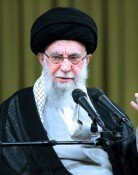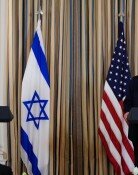U.S. Vice Presidential TV Debate
U.S. Vice Presidential TV Debate
Posted October. 06, 2004 21:54,
Issues of the Debate
Both vice presidential candidates admitted the legitimacy of the U.S. attack on Afghanistan where al-Qaedas stronghold is located.
However, Democratic Partys vice presidential candidate Edwards defined the Iraq war as a wrong war at the wrong time in the wrong place, and attacked his opponent, saying that U.S. strategy had failed.
Vice president Cheney refuted this, saying, Saddam Hussein gave $25,000 to the bereaved of terrorists who committed suicide bombing attacks and were connected to terrorist groups. The war will be still justified even when we discuss the policy again.
Edwards pointed that Cheney is the former CEO of Halliburton, a war material supplier, and raised suspicions of collusive links between business and government policies, raising the allegation that Halliburton suggested removing U.S. economic sanctions on Iran in order to trade with Iran, and that it had won a free contract amounting to $7.5 billion.
Instead of directly criticizing the inexperience of Edwards, VP Cheney made a cutting remark, saying, Edwards missed 33 out of 36 meetings in the Judiciary Committee in the Senate. His hometown newspapers call him Senator Gone.
The two candidates showed different viewpoints regarding tax issues. Cheney advocated small government policy, saying, Individuals should decide how to spend their money. Government should not intervene in individuals lives by taxing them.
Edwards said, We will reduce taxes on the middle class with 200,000 dollars or less in income. We, however, dont agree with the Republican policy to reduce taxes on millionaires.
Other Aspects of the Debates
Edwards, former trial lawyer, pressed Cheney and the George W. Bush administration hard on faulty policies they have made. Cheney advocated himself and President Bush in a consistently expressionless face.
Both played their roles faithfully as representatives of President Bush and presidential candidate John Kerry. As a representative, Cheney frequently used the president and I as the subject of his sentences, while Edwards used John Kerry and I. Other expressions, used by the presidential candidates in their debate, were frequently used by their representatives as well.
Cheney chose a strategy to avoid unnecessary arguments by often giving up chances to refute. For example, he did not refute Edwards attack on the conservative votes he caste while he was a Representative.
On the other hand, Edwards showed a contrast by utilizing all his chances to refute. He argued against criticism over his inexperience, saying, a long resume doesnt necessarily mean that a person can make good decisions.
Evaluations of the Debate
A poll conducted on 178 swing voters right after the debate showed that 41 percent believed Edwards had won the debate and 28 percent believed Cheney had won.
However, a telephone survey conducted by ABC on 509 registered voters who watched the debate said that Cheney won over Edwards 43-35.
Political analysts evaluated that it was difficult to choose a winner since neither made any critical mistakes.
Soon-Taek Kwon Seung-Ryun Kim maypole@donga.com srkim@donga.com





![[단독]폴란드, 韓 해군 최초 잠수함 ‘장보고함’ 무상 양도 안받기로](https://dimg.donga.com/c/138/175/90/1/wps/NEWS/IMAGE/2026/02/27/133437397.1.jpg)

